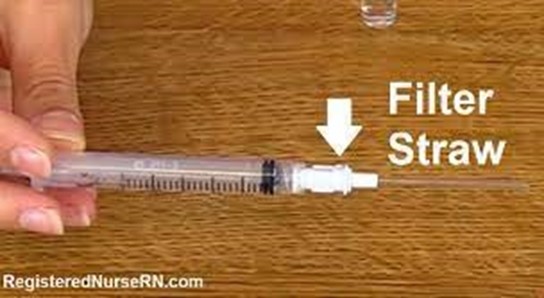A hospice nurse is visiting with the son of a client who has terminal cancer.
The son reports sleeping very little during the past week due to caring for his mother.
Which of the following responses should the nurse make?
I can give you information about respite care if you are interested
You should consider taking a sleeping pill before bed each night
I am sure you’re doing a great job taking care of your mother
It is always difficult caring for someone who is terminally ill
The Correct Answer is A
The correct answer is choice A. “I can give you information about respite care if you are interested.” Respite care is a service that provides short-term inpatient care for terminally-ill patients at a professional care facility, such as a hospital, hospice inpatient care facility, or nursing home. It is meant to relieve caregiver stress and offer them rest and time away from caregiving duties. Respite care is covered by Medicare for up to five consecutive days and no more than one respite period in a single billing period.
The nurse should offer this option to the son who is experiencing sleep deprivation due to caring for his mother.
Choice B is wrong because it suggests that the son should rely on medication to cope with his situation, which may not be appropriate or effective.
Sleeping pills may have side effects or interactions with other drugs, and they do not address the underlying cause of the son’s stress and fatigue.
Choice C is wrong because it does not acknowledge the son’s need for support or assistance.
It may sound like an empty compliment or a dismissal of the son’s concerns.
The nurse should express empathy and compassion, but also provide information and resources that can help the son.
Choice D is wrong because it does not offer any solution or guidance to the son.
It may also sound like a cliché or a generalization that does not reflect the son’s unique experience.
The nurse should avoid making assumptions or judgments about the son’s feelings or situation, and instead focus on his needs and preferences.
Nursing Test Bank
Naxlex Comprehensive Predictor Exams
Related Questions
Correct Answer is B
Explanation
Choice A reason:
Completing an incident report is not the correct action. An incident report should be completed as part of the hospital's protocol to document the medication error and ensure appropriate follow-up and investigation.
Choice B reason:
Checking the client for indications of bleeding is the correct action to be taken. In this situation, the nurse's first priority should be to assess the client for indications of bleeding, as the client received a significantly higher dose of IV heparin than prescribed. Heparin is an anticoagulant medication used to prevent blood clots, and an overdose can increase the risk of bleeding.
After administering the wrong dose of medication, the nurse's immediate concern is the client's safety and well-being. Checking for signs of bleeding, such as petechiae, ecchymosis, hematomas, bleeding gums, melena (black, tarry stools), haematuria (blood in urine), or any other unusual bleeding, is crucial.
Choice C reason:
Monitor the client's aPTT levels: This is not the correct action to be taken. Monitoring the client's activated partial thromboplastin time (aPTT) levels is essential to assess the client's coagulation status and determine if the overdose of heparin has affected their clotting ability. The healthcare provider may adjust the heparin dosage based on the aPTT levels.
Choice D reason:
Notify the risk manager: This is not the correct action to be taken. The risk manager or appropriate supervisor should be informed about the medication error as soon as possible to initiate a thorough review of the incident and take necessary steps to prevent similar errors in the future.
Correct Answer is A
Explanation

This is because glass ampules can leave small shards of glass in the solution, which can be harmful if injected into the client. A filter needle has a small mesh that traps any glass particles and prevents them from entering the syringe.
Choice B is wrong because the nurse should break the neck of the ampule away from their body to avoid injury from the glass.
Choice C is wrong because the nurse should use a different needle to inject the client after withdrawing the medication with a filter needle. This is to prevent contamination and reduce pain for the client.
Choice D is wrong because the nurse should dispose of the ampule in a sharps container, not in the trash can. This is to prevent injury and infection from the broken glass.
Whether you are a student looking to ace your exams or a practicing nurse seeking to enhance your expertise , our nursing education contents will empower you with the confidence and competence to make a difference in the lives of patients and become a respected leader in the healthcare field.
Visit Naxlex, invest in your future and unlock endless possibilities with our unparalleled nursing education contents today
Report Wrong Answer on the Current Question
Do you disagree with the answer? If yes, what is your expected answer? Explain.
Kindly be descriptive with the issue you are facing.
